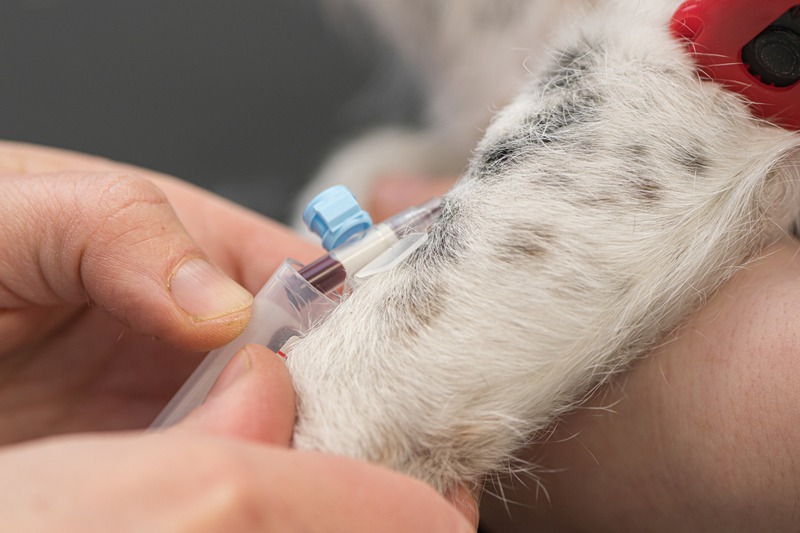Baseline testing plays a vital role in proactive pet healthcare by providing essential information about a pet’s health status when they are in a stable and healthy condition. This testing involves establishing normal parameters for various health indicators, such as blood values, organ function, and vital signs. Read more about the importance of baseline testing in pets in this article.
1. Establishing Normal Parameters
Baseline testing helps establish normal ranges for various health parameters in pets, including blood values, organ function, and vital signs. By establishing these baseline values when a pet is healthy, veterinarians can better detect deviations from normal levels during future examinations or when assessing potential health issues.
If you’re considering baseline testing for your pet, you might be curious about where these tests are done. A great example is the diagnostic lab for pets at South Hillsdale Animal Hospital. This is where magic happens. High-tech equipment and highly trained staff ensure your pet’s samples are analyzed accurately and efficiently.
2. Early Detection of Health Issues
Baseline testing allows veterinarians to detect early signs of disease or health abnormalities that may not be apparent during a routine physical examination. Identifying these issues early can lead to prompt intervention and treatment, potentially preventing the progression of diseases and improving the prognosis for affected pets.
Let’s say your dog suddenly starts vomiting, or your cat is panting excessively. These scary moments call for immediate action. Centers that offer reliable pet emergency services become your go-to. These establishments work around the clock to provide immediate care when your pet’s baseline health is disrupted.
3. Monitoring Changes Over Time
Regular baseline testing enables veterinarians to monitor changes in a pet’s health status over time. By comparing current test results to baseline values established in previous assessments, veterinarians can identify trends or abnormalities that may require further investigation or intervention.
Bringing a new puppy or kitten into your home is an adventure filled with cuddles and cute moments. But it also comes with a huge responsibility for their health. That’s where a puppy vet appointment in San Mateo or your local area comes into play. It’s your first step toward ensuring your new best friend has a healthy life.
4. Tailored Healthcare Plans
Baseline testing provides valuable information that allows veterinarians to develop tailored healthcare plans for individual pets based on their unique health needs and risk factors. This personalized approach to healthcare can help optimize preventive care measures, dietary recommendations, and treatment strategies to promote the overall health and well-being of pets.
5. Pre-Surgical Evaluation
Baseline testing is an essential component of pre-surgical evaluation protocols for pets. Before undergoing anesthesia and surgery, pets undergo thorough assessments to ensure their overall health status and identify any underlying conditions that could pose risks during the procedure. Baseline testing, including bloodwork, urinalysis, and imaging studies, helps veterinarians make informed decisions about the safety and suitability of surgical procedures for individual pets.
By identifying potential concerns or abnormalities before surgery, veterinarians can take appropriate precautions, adjust anesthetic protocols, and minimize the risk of complications, ensuring the best possible outcomes for pets undergoing surgical procedures.
6. Preventive Care Planning
Baseline testing helps veterinarians develop proactive preventive care plans tailored to each pet’s individual health needs. By identifying baseline values for parameters such as blood chemistry and organ function, veterinarians can recommend appropriate preventive measures, such as vaccinations, parasite control, dental care, and dietary adjustments, to help maintain optimal health and prevent future health problems.
7. Assessment of Age-Related Changes
Aging pets often experience changes in their health needs and may become more vulnerable to age-related conditions. Baseline testing serves as a valuable tool for veterinarians to establish a reference point of health for senior pets and monitor for age-related changes over time. By regularly evaluating parameters such as blood chemistry, organ function, and mobility, veterinarians can detect early signs of age-related conditions, including kidney disease, arthritis, and cognitive decline.
Early detection allows veterinarians to implement timely interventions, such as dietary adjustments, pain management, and cognitive enrichment, to effectively manage these conditions and preserve the pet’s quality of life. Through proactive monitoring and intervention, veterinarians can help senior pets age gracefully and enjoy their golden years to the fullest.
8. Monitoring Response to Treatment
Baseline testing provides a reference point for monitoring a pet’s response to treatment for various health conditions. By comparing post-treatment test results to baseline values, veterinarians can assess the effectiveness of treatment interventions and make adjustments as needed. Monitoring response to treatment helps ensure that pets receive appropriate care and achieve the best possible outcomes for their health conditions.
Final Thoughts
Baseline testing is an indispensable tool in modern veterinary medicine, providing valuable insights into a pet’s health and well-being. By establishing baseline values and regularly monitoring a pet’s health status, veterinarians can detect early signs of disease, assess response to treatment, and implement proactive preventive care measures. Ultimately, baseline testing helps veterinarians provide comprehensive and personalized healthcare that promotes the long-term health and happiness of pets.





